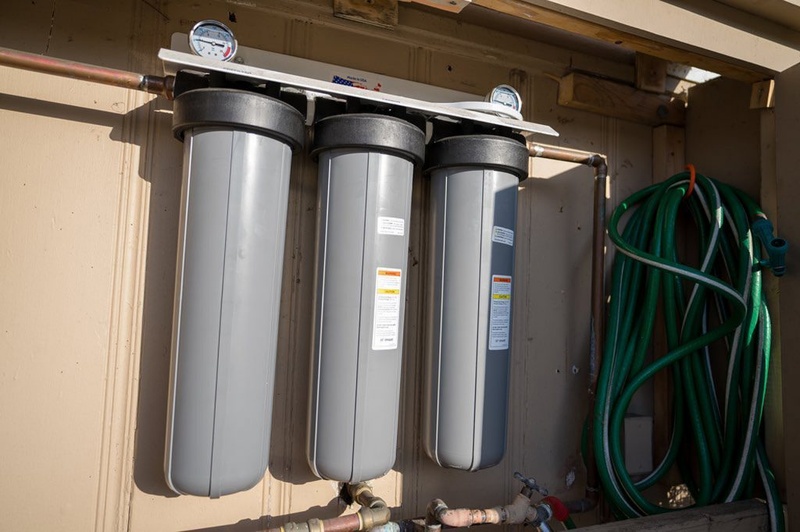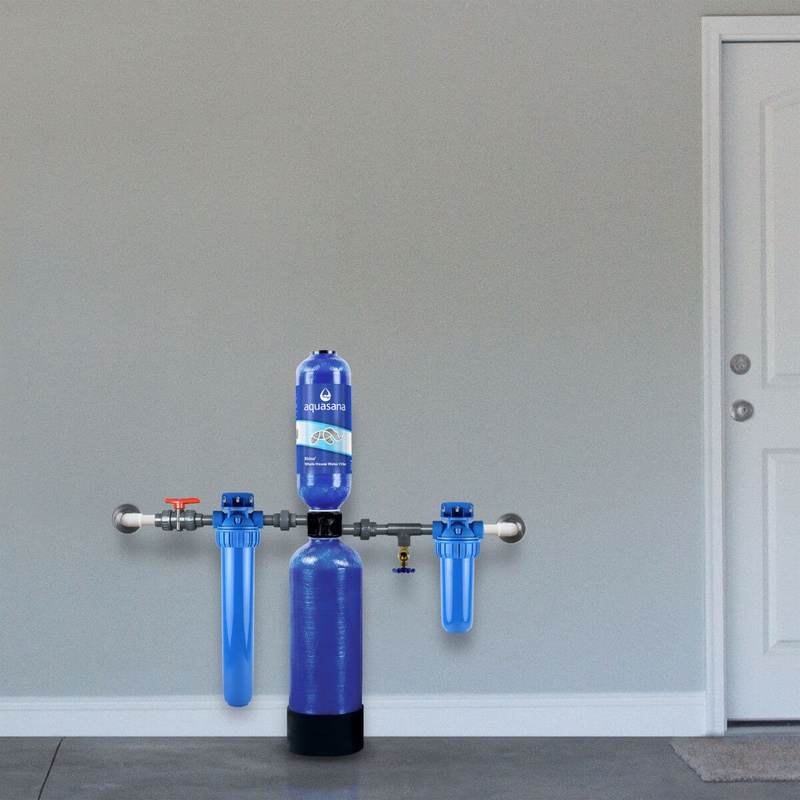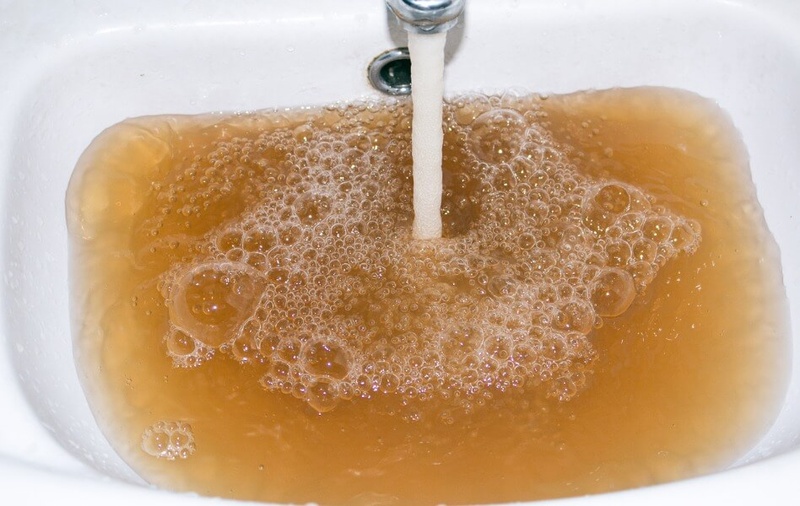House water filter systems provide comprehensive solutions for improving water quality throughout your home. These systems remove contaminants, improve taste, and protect appliances from sediment and mineral buildup. With numerous options available, ranging from basic sediment filters to advanced multi-stage purification systems, choosing the right one requires understanding your specific water quality issues and household needs. This review examines top-rated whole house filtration systems, comparing their effectiveness, costs, and installation requirements to help you make an informed decision for cleaner, healthier water.
House water filtration systems come in two main categories: point-of-entry (POE) and point-of-use (POU) systems. POE systems treat water as it enters your home, providing filtered water to every tap and appliance. POU systems treat water at specific locations like kitchen sinks or showers.
Within these categories, several filtration technologies address different water quality issues:
- Activated carbon filters – Excellent for removing chlorine, volatile organic compounds (VOCs), and improving taste and odor
- Sediment filters – Trap physical particles like dirt, sand, and rust
- Reverse osmosis systems – Remove up to 99% of contaminants including dissolved solids, heavy metals, and some microorganisms
- Water softeners – Exchange calcium and magnesium ions with sodium to reduce water hardness
- UV purification – Kills bacteria, viruses, and other microorganisms without chemicals
- KDF (Kinetic Degradation Fluxion) – Uses copper-zinc media to remove heavy metals, chlorine, and control bacteria growth
Content Navigation
Top Whole House Water Filter Systems Reviewed
SpringWell CF Whole House Water Filter System
SpringWell’s system uses a four-stage filtration process with coconut shell carbon and innovative technology. Key strengths include its impressive 1,000,000 gallon capacity and minimal maintenance requirements. Users report excellent contaminant removal, especially for chlorine, with flow rates maintaining household pressure. The lifetime warranty and 6-month money-back guarantee add considerable value despite its premium price point.
Aquasana EQ-1000 Whole House Filter System
The Aquasana EQ-1000 offers comprehensive filtration for up to 1,000,000 gallons of water. Its multi-stage approach combines sediment pre-filtering, copper-zinc mineral filtration, activated carbon, and optional UV treatment. While highly effective at removing chlorine, pesticides, and other contaminants, some users note reduced water pressure in larger homes and relatively expensive filter replacements.
iSpring WGB32BM 3-Stage Whole House Water Filter
This system targets sediment, chlorine, heavy metals, and other contaminants through its three-stage filtration. The transparent first-stage housing allows easy monitoring of filter condition. With 100,000-gallon capacity, it’s more affordable than premium options but requires more frequent filter changes. Users appreciate its straightforward installation and effective removal of iron and manganese.
Call 888-896-7031 for Free Local HVAC Quotes – Compare and Save Today!
Home Master HMF3SDGFEC Whole House Filter
Home Master’s three-stage system is specifically designed for well water with its sediment, iron, and activated carbon filtration stages. The oversized filters provide excellent flow rates (up to 15 gallons per minute) while minimizing pressure loss. The system effectively handles moderate iron levels up to 3 ppm, but extremely hard water may require additional treatment solutions.
| System | Capacity | Flow Rate | Filter Lifespan | Best For |
|---|---|---|---|---|
| SpringWell CF | 1,000,000 gallons | 9-20 GPM | 6-9 years | Municipal water |
| Aquasana EQ-1000 | 1,000,000 gallons | 7 GPM | 10 years | Comprehensive filtration |
| iSpring WGB32BM | 100,000 gallons | 15 GPM | 12 months | Heavy metal removal |
| Home Master HMF3SDGFEC | 95,000 gallons | 15 GPM | 12 months | Well water with iron |
Factors to Consider When Choosing a Water Filter System
Before purchasing a whole house water filter, assess these critical factors to ensure you select the appropriate system:
- Water quality and contaminants – Test your water to identify specific issues (chlorine, sediment, heavy metals, hardness)
- Water source – Municipal water typically contains chlorine and fluoride, while well water often has sediment, iron, sulfur, and bacteria
- Household size and water usage – Larger households need systems with higher flow rates to maintain water pressure
- Filter capacity and lifespan – Consider how frequently filters need replacement and associated costs
- Installation requirements – Assess space availability, plumbing compatibility, and whether professional installation is needed
- Certification – Look for NSF/ANSI certifications that verify contaminant reduction claims
Cost Comparison of Popular Water Filter Systems

The investment in a whole house water filter system involves both upfront and ongoing costs. Initial purchase prices typically range from $300 to $2,000 depending on system complexity and capacity. Consider these comprehensive costs when budgeting:
| Cost Factor | Budget Systems ($300-$600) |
Mid-Range Systems ($600-$1,200) |
Premium Systems ($1,200-$2,000+) |
|---|---|---|---|
| Initial purchase | Basic single-stage or dual-stage systems | Multi-stage systems with specialized filters | Comprehensive systems with advanced technology |
| Installation | $200-$400 (DIY possible) | $400-$800 | $800-$1,500 |
| Annual filter replacement | $100-$200 | $200-$300 | $300-$500 |
| Filter lifespan | 3-6 months | 6-12 months | 1-6 years |
| 5-year ownership cost | $1,200-$2,000 | $2,000-$3,000 | $2,500-$4,500 |
Premium systems typically offer lower long-term costs despite higher initial investment due to longer filter lifespans and better durability. Budget systems may cost more over time with frequent replacements and potential plumbing issues.
Installation and Maintenance Requirements

Proper installation and regular maintenance ensure optimal performance and longevity of your water filtration system. Most whole house systems are installed at the main water line entry point, before water heaters and distribution throughout the home.
Installation Considerations
- DIY installation is possible for those with basic plumbing skills, typically requiring 2-4 hours
- Professional installation costs $200-$800 depending on system complexity and local labor rates
- Most systems require at least 2-3 feet of accessible pipe at the main water entry
- Bypass valves are essential for maintenance without disrupting water service
- Some systems require electrical connections for control heads or UV components
Maintenance Requirements
Regular maintenance is crucial for optimal filter performance. Sediment pre-filters typically need replacement every 3-6 months, while main filter cartridges may last 6-12 months depending on water quality and usage. Premium carbon tank systems can last 5+ years before media replacement.
Call 888-896-7031 for Free Local HVAC Quotes – Compare and Save Today!
Watch for these signs indicating maintenance is needed:
- Reduced water pressure throughout the house
- Change in water taste or odor
- Visible sediment or discoloration in water
- Approaching the manufacturer’s recommended replacement timeline
Benefits of Installing a Whole House Water Filter
Investing in a whole house water filtration system provides numerous advantages beyond just clean drinking water:
Health and Safety Benefits
- Removes harmful contaminants including chlorine, lead, pesticides, and industrial chemicals
- Reduces exposure to disinfection byproducts linked to increased cancer risk
- Eliminates unpleasant tastes and odors from chlorine and sulfur
- Can remove bacteria and viruses with appropriate filtration stages
Household Benefits
- Extends appliance lifespan by preventing scale buildup and corrosion
- Reduces soap scum and mineral deposits on fixtures and in bathrooms
- Improves efficiency of water heaters by preventing sediment accumulation
- Softer, cleaner clothes from laundry washed in filtered water
- Reduces plastic waste from bottled water consumption
Personal Benefits
- Healthier skin and hair from showering in filtered water
- Reduces chlorine inhalation during hot showers
- Potentially increases home value with permanent filtration infrastructure
- Long-term cost savings compared to bottled water or point-of-use filters
Common Water Quality Issues and Recommended Filters

Different water sources present unique filtration challenges. Identifying your specific water problems helps select the most effective solution:
| Water Issue | Signs/Symptoms | Recommended Filter Types |
|---|---|---|
| Chlorine/Chloramine | Chemical smell, dry skin, faded clothes | Catalytic carbon filters, KDF media |
| Hard Water | Scale buildup, soap scum, spotty dishes | Water softeners, salt-free conditioners |
| Sediment | Cloudy water, particles in water | Sediment pre-filters (10-50 micron) |
| Iron/Manganese | Rusty stains, metallic taste | Air injection systems, manganese greensand |
| Heavy Metals | Requires water testing to identify | Reverse osmosis, KDF, bone char carbon |
| Bacteria/Microorganisms | Gastrointestinal issues, failed water tests | UV purification, absolute 1-micron filters |
| VOCs/Chemicals | Chemical smell/taste, known contamination | Activated carbon block, catalytic carbon |
For well water users, multi-stage systems specifically designed for well water typically offer the best protection, combining sediment filtration, iron removal, carbon filtration, and optional UV purification. Municipal water users generally benefit from systems focusing on chlorine removal and chemical filtration.
Remember that water quality varies significantly by region and even neighborhood. A professional water test provides the most accurate basis for choosing an appropriate filtration system tailored to your specific contaminant profile.
Tips for Getting the Best HVAC Prices
- Prioritize Quality Over Cost
The most critical factor in any HVAC project is the quality of the installation. Don’t compromise on contractor expertise just to save money. - Check for Rebates
Always research current rebates and incentives — they can significantly reduce your overall cost. - Compare Multiple Quotes
Request at least three estimates before making your choice. You can click here to get three free quotes from local professionals. These quotes include available rebates and tax credits and automatically exclude unqualified contractors. - Negotiate Smartly
Once you've chosen a contractor, use the proven strategies from our guide — How Homeowners Can Negotiate with HVAC Dealers — to get the best possible final price.

